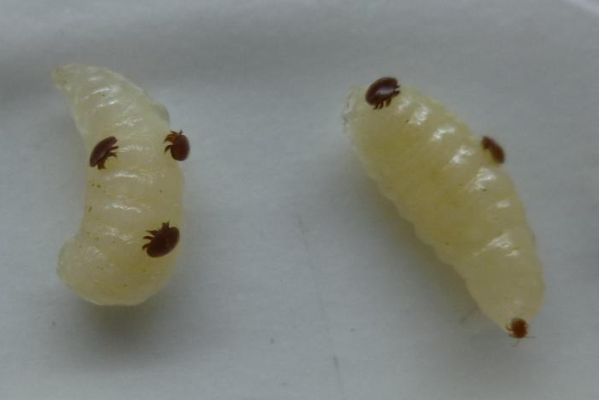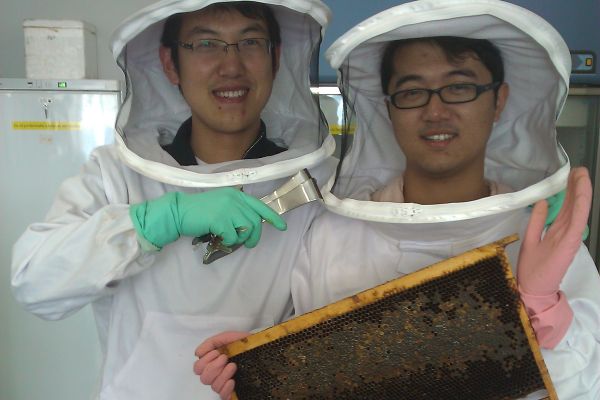15 Oct 2015
A new study by Xi’an Jiaotong-Liverpool University scientists, led by Dr Tatsuhiko Kadowaki from the Department of Biological Sciences, could lead to a solution to one of the major causes of honey bee death.
Global honey bee populations are in decline, a major threat being Varroa destructor mites (see picture below) which attach themselves to bee larvae, sucking the blood-like plasma from their bodies and transmitting viruses. If left untreated, these mites can destroy an entire colony of bees in two years.

Beekeepers had been using synthetic miticides to kill the mites, but the mites build up resistance over time. The findings of Dr Kadowaki and colleagues, published in Cell Reports, show promising results for plant-based miticides that render mites unable to locate and attach themselves to the bee larvae.
“The miticides activate a sensory protein found on the mites’ front legs which prevents mites from finding their honey bee hosts”, explained Kadowaki. “Several plant-derived miticides activated the protein but had no negative effect on honey bees.”
In addition to their effectiveness in repelling the mites, these plant-based compounds are healthier for us. If trace amounts of these natural compounds end up in our food they can be easily broken down by our bodies, unlike the synthetic ones.
In the near future, Dr Kadowaki and his team hope to develop more effective methods for large beekeeping operations to apply the compounds into beehives.
“Modern apiaries have lots of hives and they can’t use the same method we use, so it’s better to have an easier way to apply the compound into the hive. That would be the next step.”

Einstein is rumoured to have said that if bees were to die out, mankind would only have four years left on this earth. This remark became shockingly relevant in 2013 with Time magazine’s coverage in 2013 of colony collapse disorder, and the inescapable fact is that global honey bee populations are in sharp decline.
Previously, the major cause of colony collapse disorder was thought to have been neonicotinoid pesticides. Used to control pests on various crops, these pesticides were thought to be killing off bees as they made their rounds of pollination.
“Most honey bees die during the winter,” said Dr Kadowaki. “As farmers don’t often use pesticides during the winter we can eliminate that as a major cause of winter losses of bee colonies.”
Other factors affecting honey bee colonies are viruses, and the lack of nutritional variety due to farmers replacing flowery wildlands with crop-growing fields, but the single greatest threat is the Varroa destructor mite.
The knock-on effects of the disappearance of the honey bee have far greater implications than honey production – many common fruits and vegetables depend on the honey bee for pollination, and the demise of the honey bee would be disastrous for our nutrition and the global economy.
15 Oct 2015







